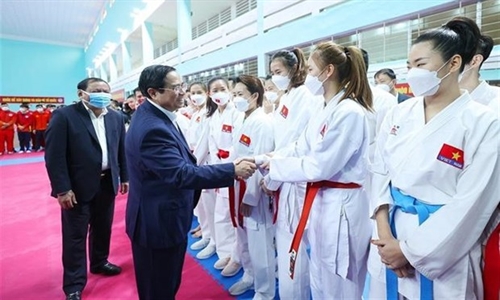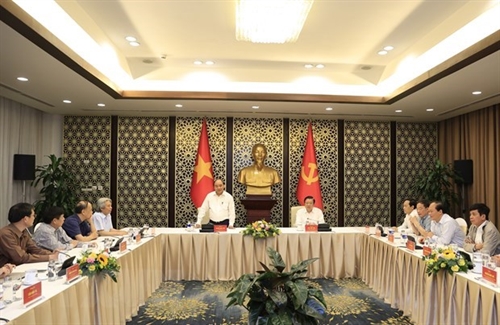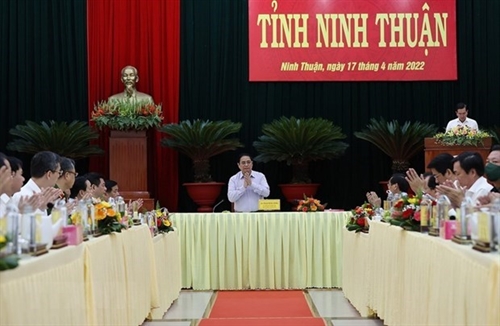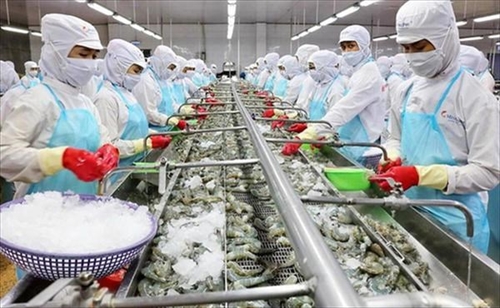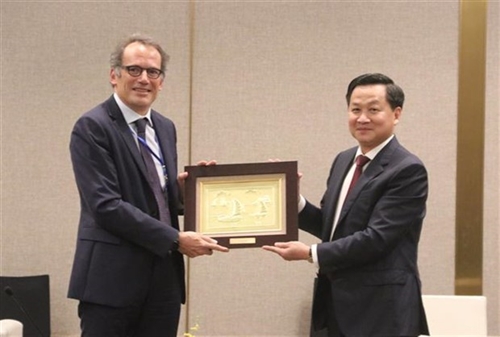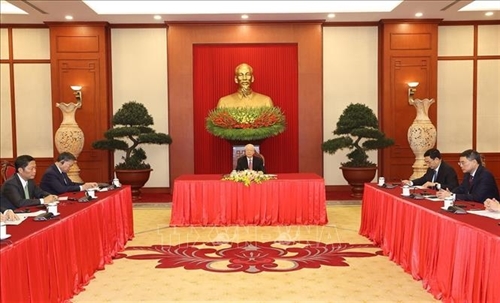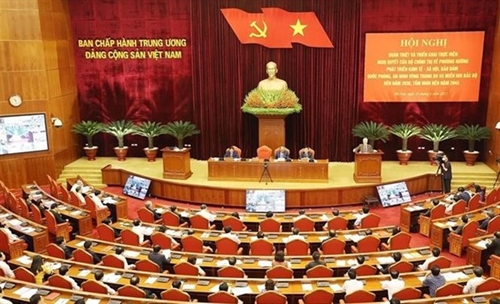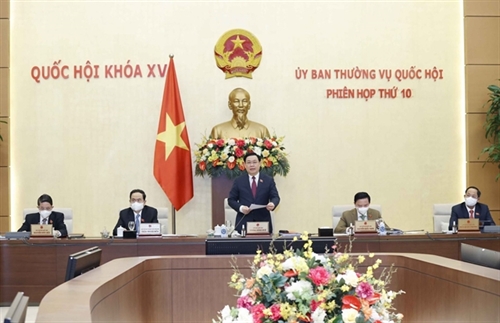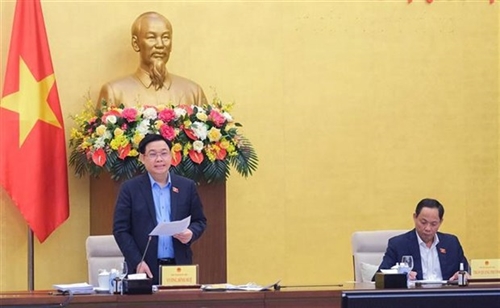The revised law on radio frequencies aims to strictly manage and effectively allocate the right to use radio frequencies, and create a healthy competitive environment for telecommunications activities, an official of the Ministry of Information and Communications has said.
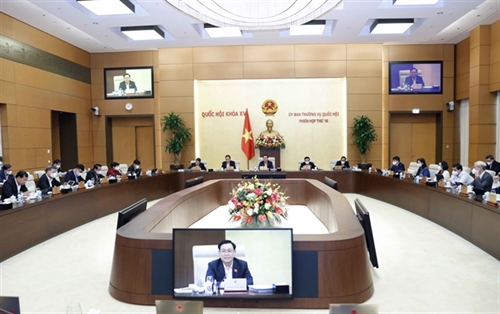 |
| NA Standing Committee debates revised law on radio frequencies__Photo: VNA |
At the ongoing 10th session of the National Assembly (NA) Standing Committee on April 18 in Hanoi, Deputy Minister of Information and Communications Pham Duc Long went on to say that the revised law is expected to promote the development of telecommunications infrastructure, contribute to creating a foundation for national digital transformation, gradually developing the digital economy and digital society in the country.
It was also expected to help promote administrative reform, and raise the responsibility of the State, businesses and people in the use of radio frequencies and satellite orbits, contributing to ensuring national defense, security and communication activities, Long said.
The revised law could also help improve the effectiveness and efficiency of radio frequency management activities, and ensure the compliance with the law by radio frequency users, the deputy minister said.
Chairman of the NA’s Committee for Science, Technology and Environment Le Quang Huy said that the total amount of bandwidth of the mobile bands was finite, so the more mobile bands a business held, the more competitive advantage it had.
The Committee for Science, Technology and Environment emphasized the necessity to have regulations on limiting the total bandwidth that an organization is allowed to hold and use to avoid exclusive acquisition, inefficient use or waste of frequency resources. However, there should be no limit on bandwidth because it may affect the market development of businesses and the interests of people in choosing a network operator.
Huy also said that there remained divergent opinions on the auction of the right to use radio frequencies.
Some were in favor of the regulation on the auction of the right to use radio frequency bands with high commercial value and public terrestrial mobile communication bands as shown in the draft law, which is said to ensure competitiveness and transparency in licensing the right to use radio frequencies, except radio frequencies serving national defense and security purposes.
Others said the auction should not be placed on bands with high commercial value and public terrestrial mobile communication bands because the major mobile telecommunications service providers in Vietnam now are mostly state-owned enterprises.
Such service providers also expressed their opinion that the right to use radio frequencies should not be auctioned now.
Huy said that the 2009 Law on Radio Frequency effective from July 2011 had provisions on the auction of the right to use radio frequency bands but such provisions had not been enforced properly in reality.
“It is necessary to make stricter, clearer and more specific regulations to ensure economic benefits and meet requirements for national defense and security in the current conditions and the healthy development of the telecommunications market,” Huy said.
Regarding the proposed regulation on using radio frequencies first allocated for national defense and could be additionally used for socio-economic development in some cases, the Ministry of National Defense opposes the combination, arguing the use of the same allocated frequency band for dual purpose is not clear, which can cause difficulties in examining and monitoring state budget funds or business finance for each type.
The use of frequencies and bands for national defense and security purposes is given priority, as well as for special security. Meanwhile, the use of frequencies and bands for socio-economic development purposes follows an open, transparent and competitive mechanism.
Therefore, combining the use of frequencies and bands for these two purposes is very difficult, complicated to implement and may lead to undesirable consequences.
NA Chairman Vuong Dinh Hue said that radio frequencies constitute an important national asset, especially in today’s strong digital transformation environment.
The radio frequency bands used to receive little attention but now when realizing the important issue of the bands, many agencies and units were interested, Hue said, adding that the amendments of the law were urgent and important.
“The frequency band is a kind of public property, but it is an important national asset,” said the top legislator.- (VLLF)
